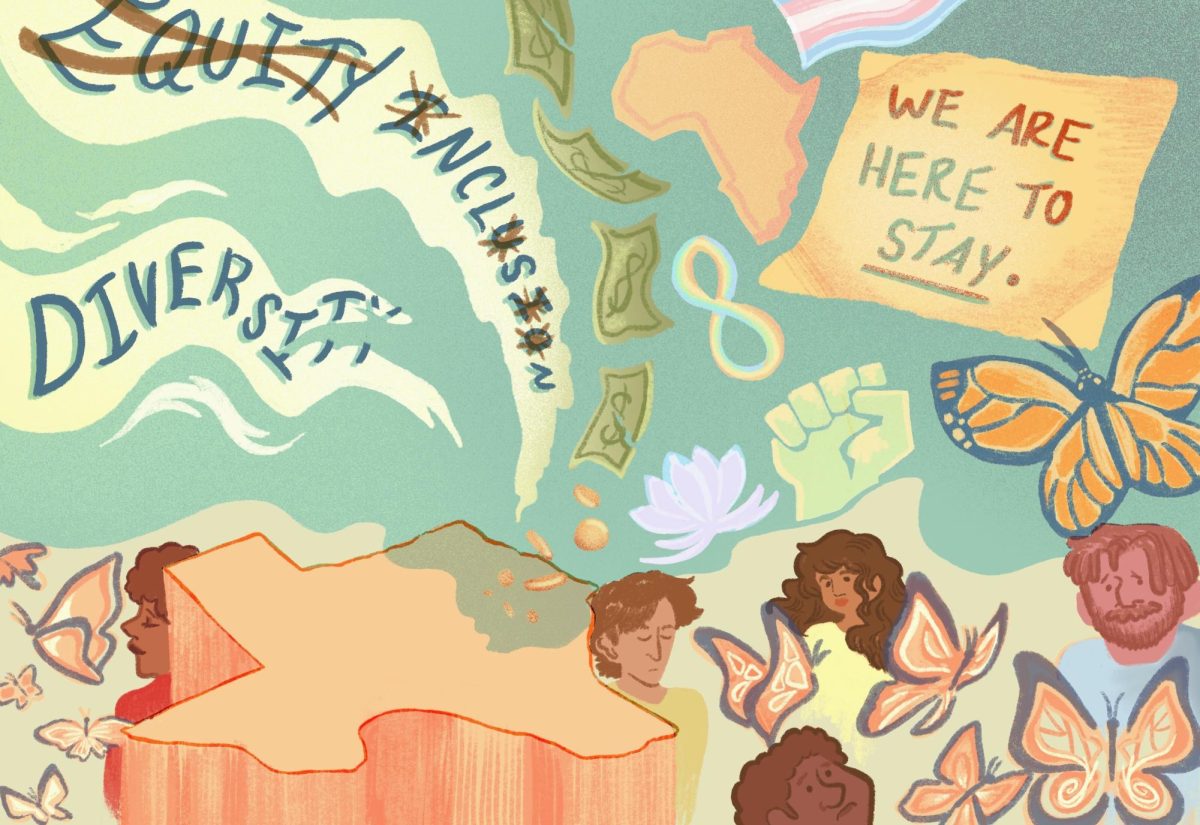In student organizations, UT students can find a community within a large and often intimidating university population. It’s a rite of passage to be flagged down on Speedway at the start of the semester inundated with flyers, introductions and other less-than-subtle advances to join one of hundreds of unique campus organizations.
Still, it can be difficult to know which organizations will truly provide a sense of belonging. For LGBTQ students — who report feeling less safe at UT than their cisgender, heterosexual peers — searching for accepting spaces can be an isolating rather than inviting experience.
In the past, the Women’s Community Center (formerly the Gender and Sexuality Center) offered education and training for student organizations to promote welcoming spaces for all identities. But under the newly implemented Senate Bill 17, the center can no longer provide such diversity, equity and inclusion resources.
Now, it’s truly up to student organization leaders and members to ensure their group is a safe and supportive place for all backgrounds and identities.
SB 17’s restrictions apply to university-sponsored organizations, such as UT’s Student Government Association, which was recently forced to disband its Queer and Trans Student Alliance and redesignate the Diversity and Inclusion Agency as the Community Engagement and Advocacy Agency. Furthermore, new rules concerning language, partnerships and resource availability have severely limited student government.
“(Student leaders should) get educated on the changes that SB 17 brings to our university, as well as the state as a whole, and take those things into consideration when planning events, because there’s things that (student government) can’t do that other people are able to,” said Milo Araguz, a neuroscience sophomore and co-director of the CEAA.
Unlike university-funded groups, student organizations have a unique opportunity to provide education, training and inclusion initiatives that SB 17 disallows in official spaces.
In a statement posted to the Women’s Community Center’s Instagram, the WCC clarified that although UT employees will not be allowed to conduct training on race, sexual orientation or gender identity, student groups can still host such instruction. Free online resources like ally training workshops can be a great place to start.
“People should be more considerate at this time of the people who have lost safe spaces, be aware of that, and be supportive in any way that they can,” said Nicole Pabon Pabon , a government and philosophy sophomore and co-director of the CEAA alongside Araguz.
Pabon Pabon said that student organizations can also promote belonging by prioritizing history and celebration. Uplifting marginalized voices is important to preserving representation for LGBTQ community members. One way to accomplish this is to acknowledge and share information on historical holidays, such as the upcoming HIV awareness days in February.
Chemical engineering sophomore Alex Bivens serves as president of their organization, Engineering LGBQTies.
“Our purpose is just to create a community and safe space for queer engineering students to find each other and to have conversations about things within the Cockrell school, maybe difficult things that (our members) may be experiencing that are different from their cishet peers,” Bivens said.
Spaces like Bivens’ are crucial to removing the guesswork from students’ experience in finding LGBTQ-welcoming organizations. Bivens also emphasized clear allyship as a way for students to support their peers, such as cisgender students sharing their pronouns at events.
Student organizations that are not directed at marginalized communities must likewise promote inclusivity through education, training and support. As a community, discriminatory legislation does not have to dilute our love and support for each other, and student leaders play a necessary role in preserving DEI on a post-SB 17 campus.
Jackson is a Plan II and journalism sophomore from Boerne, Texas.















